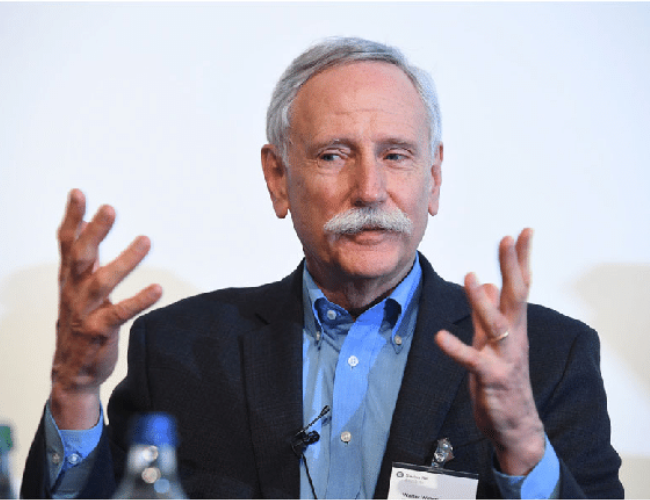Dr. Walter Willett is a renowned epidemiologist, nutritionist, and professor at Harvard T.H. Chan School of Public Health and Harvard Medical School.
His illustrious career has centered around groundbreaking research in the field of nutrition, with a particular focus on the role of diet in preventing chronic diseases.
In this article, we will explore the life and career of Dr. Walter Willett, delving into his background, specialization, dedication, strengths, weaknesses, and the influential activities that have marked his remarkable career.
Story of Walter Willett

Dr. Walter Willett is a distinguished figure in the field of epidemiology and nutritional science.
- Born on June 20, 1945, in Hart, Michigan
- Walter Willett grew up in a family that valued education and health.
- His early years were marked by a fascination with biology and the human body, instilling in him a desire to make a difference in the world of medicine.
Walter Willett’s educational journey began at the University of Michigan, where he pursued a bachelor’s degree in food science and nutrition. During his undergraduate years, his interest in nutrition was ignited, setting the stage for his future career.
After that, Willett decided to pursue further studies in medicine. He attended the University of Michigan Medical School, where he honed his medical skills and developed a deep understanding of human physiology. It was during this time that he started to contemplate the connection between diet and health, sparking his interest in epidemiology and nutrition.
Following medical school, Willett continued his training at Harvard Medical School, where he completed his internship and residency in internal medicine at Boston’s Brigham and Women’s Hospital.
Dr. Willett’s journey took a pivotal turn when he joined the Harvard T.H. Chan School of Public Health as a postdoctoral fellow. Here, he started working with renowned epidemiologist and nutritionist Dr. Frank Speizer. Under Dr. Speizer’s mentorship, Willett began his groundbreaking work on the Nurses’ Health Study (NHS), a large, long-term observational study that sought to understand the links between lifestyle, diet, and disease.
In 1984, Walter Willett became a full professor at Harvard T.H. Chan School of Public Health and Harvard Medical School. He continued to lead the NHS and expanded his research endeavors to include the Health Professionals Follow-up Study (HPFS), further broadening the scope of his investigations into the impact of diet and lifestyle on health.
Walter Willett’s Career

Specialized Career
Dr. Walter Willett’s career has been profoundly specialized in the field of epidemiology, with a specific focus on the study of nutrition and its role in chronic diseases.
His pioneering work involves examining the dietary habits and health outcomes of large populations, allowing for significant insights into the relationships between diet and conditions such as heart disease, cancer, and diabetes.
Dedication in Career
One of the defining features of Dr. Willett’s career is his unwavering dedication to advancing the field of nutritional epidemiology.
His commitment to conducting rigorous research and translating findings into practical recommendations for public health has been a driving force throughout his career.
Strengths & Weaknesses in Career
Dr. Willett’s career is characterized by several remarkable strengths:
- Research and Publications: He has authored over 1,700 scientific publications, including numerous studies that have significantly advanced our understanding of the links between diet, lifestyle, and health.
- Harvard Leadership: Dr. Willett has played a key role in Harvard’s nutrition and epidemiology programs, mentoring numerous students and professionals who have gone on to make significant contributions to the field.
- Nutritional Guidelines: His research has directly influenced dietary guidelines and recommendations, helping shape public health policy and initiatives around the world.
While Dr. Willett’s career is marked by significant achievements, it’s essential to acknowledge potential weaknesses as well:
- Controversy: His research and dietary recommendations have occasionally sparked controversy, with critics challenging certain findings or dietary guidelines.
- Limitations of Observational Studies: Some have pointed out the limitations of observational studies, which are the primary research method used in nutritional epidemiology. These studies can establish associations but do not prove causation.
Activities in the Career of Walter Willett
Dr. Walter Willett’s career is multifaceted and includes a wide range of activities dedicated to advancing knowledge in epidemiology and nutrition:
1. Research
He has conducted extensive research on the relationship between diet, lifestyle, and chronic diseases, with a focus on large-scale, long-term observational studies.
2. Authorship

Dr. Willett has authored numerous books, including “Eat, Drink, and Be Healthy,” which translates complex scientific findings into practical advice for the general public.
3. Teaching and Mentoring
He has been an influential educator, teaching courses and mentoring students in the fields of epidemiology and nutrition at Harvard University.
4. Public Speaking and Lectures
Dr. Willett is a sought-after speaker, delivering lectures and presentations at conferences, medical schools, and public events to share his research and insights.
5. Leadership Roles
He has held leadership positions in various professional organizations and committees related to nutrition and public health, contributing to the development of dietary guidelines and policies.
6. Advocacy
Dr. Willett has been an advocate for promoting healthier dietary choices and addressing public health challenges related to nutrition, such as obesity and chronic diseases.
7. Global Impact
His work has had a global impact, influencing dietary recommendations and public health policies in multiple countries and contributing to the advancement of nutrition science worldwide.
8. Online Presence
Dr. Willett maintains an online presence through the Harvard T.H. Chan School of Public Health, where he shares articles, resources, and updates on nutrition and public health.
In conclusion, Dr. Walter Willett’s career has been defined by his pioneering contributions to the field of nutritional epidemiology. His research, publications, and advocacy efforts have significantly shaped our understanding of the links between diet and chronic diseases.
Through his dedication to advancing public health and his influence on dietary guidelines, Dr. Willett continues to inspire individuals and policymakers to make informed dietary choices that promote better health and well-being.


